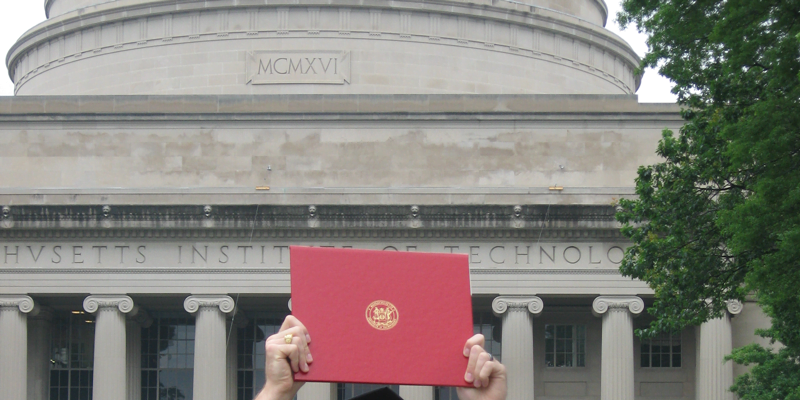When CMS describes its graduate program to prospective students, we tout the mission, the research, what you do in the program for two years. We’re an academic program after all.
But that sometimes shortchanges what happens in careers afterward.
Today, however, we have a large enough number of alumni to do some research on salaries, industries, and general opinions about the CMS grad school experience. And we just did. In late October of 2012, we sent out a dead-simple survey to our alumni to get a sense of tangible measures, like income and professional fields. A day later, we had responses from nearly half of them.
The results?
The average annualized income in their first job after graduation was over $50,000.
The income of a third of respondents was clustered around that $50,000 mark. Several, though, entered (or re-entered) the workforce with salaries over $100,000, more than the average pay of new M.B.A.’s…and without any debt. That’s a big deal and a big reason prospectives choose us. CMS offers its graduate students research assistantships that cover the cost of tuition and provide a stipend; M.B.A.’s, on the other hand, can graduate with between $61,000 and $110,000 of student loan debt. With subsidized (that is, 0% interest) federal loans capped at $25,000, other graduate students are forced to take out unsubsidized or private loans for the remaining tuition, not to mention to cover the cost of living. With interest rates far above inflation, the final numbers are enormous. Even for less expensive graduate degrees, the average debt load is still over $43,000 before interest.
So, if you’re considering grad school, it’s $43,000 of debt + interest on everything above $25k…vs. $0 in debt at CMS.
But maybe you’re not choosing between which grad school but if grad school. That’s more of a qualitative question…
90% of CMS alumni said yes when asked if the program prepared them for their current job.
Bear in mind, this covers more than a decade of alumni. Many have had a chance to advance, change jobs, or even change careers. They’ve had the chance to look back over a long path and wonder if CMS was part of a straight line from where they were to where they are, or if it was an unnecessary detour, and nine out of ten said grad school at CMS helped put them where they are today.
We can put that more quantitatively too…
41 of our 43 respondents were employed at the time of graduation or soon after.
Let’s acknowledge a possible self-selection bias in this number: we don’t know if those who took the survey were more or less likely to have work immediately. That aside, this puts CMS graduates right in line, employment-wise, with others with advanced degrees—about 1% shy of full employment.
Finally, these simple measures of income, grad school, and employment look even better in light of our graduates’ chosen industries. Many preferred careers that paid less, and others for careers in riskier fields. The most common were academia, educational technology, and the entertainment industry…the upshot being: with the first CMS alums joining the workforce just after the dot-com bubble burst and the most recent during the worst employment environment since the 1930’s, practically all CMS graduates are thriving how and where they want to be.
Likewise, if we use our CMS LinkedIn group to look up alum’s current jobs (login required), we see alums working in public radio, at Microsoft, as video game entrepreneurs, digital advertising strategists, freelance illustrators, professors, and just about everything media-related in between.
So even as we geek out about our research, new courses, and our expanding faculty, the long-term value of a CMS degree is a big point of pride. It’s one of the many ways we’re confident Comparative Media Studies is doing its job, that an early supporter’s tongue-in-cheek motto of “preparing students for jobs that don’t yet exist” does work in practice, and that—if you’re considering graduate studies—MIT Comparative Media Studies is the place to be.




